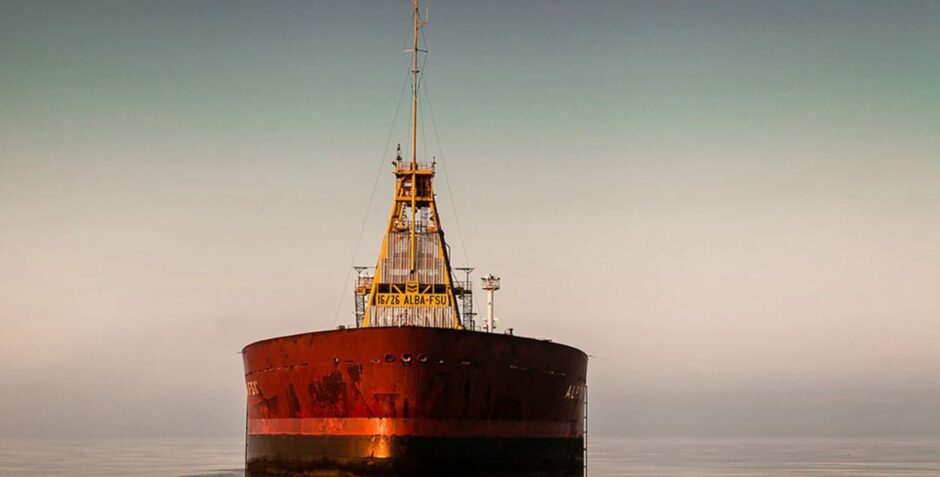
A story carried by EV on June 23 has been gnawing at me ever since …
It’s about an operator that says it really cares about safety and environment and yet it appears perfectly happy to let critical safety checks slide.
And it’s about a regulator that needs to sharpen up.
It’s the kind of situation that yet again makes me wonder what on earth is going on out there on the UKCS regarding the real state of offshore safety when a company, on this occasion it is Ithaca but could easily have been another company, can get away with sloppy asset management.
There’s been similar events recently with Eni deferring more than 200 “safety and environmentally critical” planned maintenance orders at the Douglas Installation in Liverpool Bay.
It makes me wonder too what on earth is going on at the HSE; and why it was not more diligent in keeping tabs on the condition of a floating storage unit living on borrowed time; virtually a decade past its “sell-by” date.
Having covered the oil & gas sector intensively since the Cullen Inquiry, but armed with several years’ prior experience of UK maritime safety issues much of it oil & gas-related, I’ve long taken a deep interest in North Sea offshore safety.
In this particular case, a number of issues came to light when, during an inspection of March 23, and follow up meetings in April, the HSE identified a number of concerns regarding the state of the floating storage unit located in the Ithaca-operated Alba oilfield
Most notable among these included that:
· One of the cargo tanks had not been inspected for seven years and had a two-foot (615mm) crack on the main deck – it should have been checked every five years.
· Another, which should have been inspected every four years, hadn’t been checked since 2014.
The Alba FSU is a 250m long tanker-shaped oil storage box that sits out in the field for years on end, enduring everything the increasingly rough North Sea can throw at it.
Sooner or later, not unlike a trading tanker, the stresses and strains take their toll and cracks eventually appear. It has been in service for almost 30 years.
Many ships have been lost due to a lack of attention to hull integrity. Equally, many have comfortably gone beyond their original design life because they have been well maintained, and a crucial element of that is careful checking for cracking.
That management thinks it can get away not carrying out safety-critical inspections when they are due smacks of a dangerous attitude. That is point blank unacceptable and, frankly needs dealing with robustly.
For Ithaca’s part, the company said it is “progressing remediation work before further inspection” and although “slightly delayed by Covid, the inspection work will be completed ahead of the HSE compliance date” of May 2023.
As you would expect, the quality of the relationship between operators and those who work on the offshore shop floor to deliver the goods is important. There are good and bad out there.
Quite where Ithaca sits on this spectrum is open to debate but, it could be argued that, in the case of Alba and more particularly the small crew that man the FSU, perhaps it could be better.
Regrettably, UKCS safety reps do not have the powers (nor the education and regard) that their Norwegian counterparts enjoy.
On the NCS, that includes being able to order the shut down an offshore installation for safety reasons if the operator’s actions are deemed insufficient.
The situation with HSE seems a far cry from the systematic Offshore Safety Division set up under the leadership of Tony Barrell following publication of the Cullen Inquiry into the Piper Alpha disaster.
I want to know how the classification societies and insurers of such assets fit into the picture. Broadly speaking, shipowners ordering new tonnage have such vessels built under supervision such by as Lloyds, DNV, ABS and Bureau Veritas.
Originally, the FSU was built for Alba’s first operator Chevron under Lloyd’s supervision.
What is important to note is that classification societies certainly had the reputation for being assiduous regarding vessel surveys and consequential repairs required to be carried out by their owners.
That in turn had a knock-on impact on insurance. Currently, the UKCS big-three insurers of oil & gas infrastructure are Allianz, Aviva and AXA. They hold around £6 billion of cover between them … mostly elderly production infrastructure.
However, if the Alba FSU issues are anything to go by, they need to tighten up on their procedures, get tougher on non-compliance and ensure a high quality dialogue with the HSE, if that isn’t already the case.
Recommended for you
